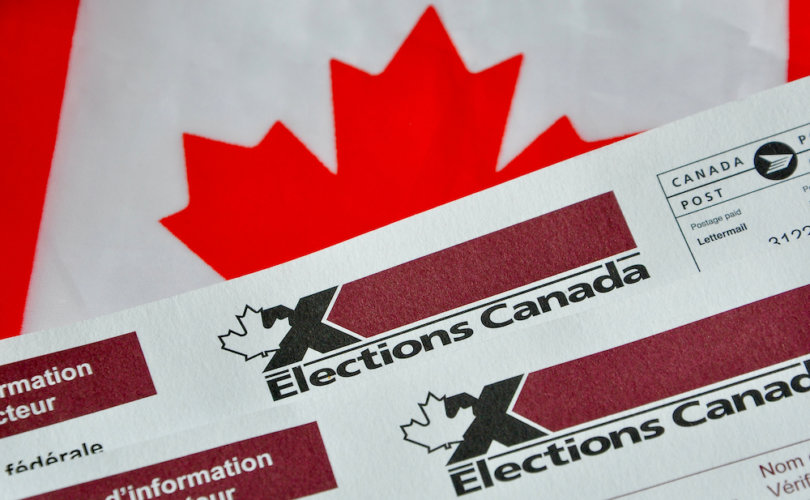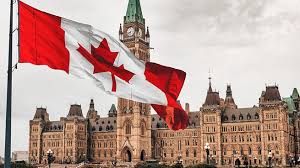The implementation of Canada’s Online News Act, also known as Bill C-18, has raised concerns about the potential impact on news sharing via popular social media platforms such as Facebook and Instagram. As negotiations between the government and media companies continue, Canadians are facing the possibility of being blocked from sharing news content on these platforms until after the upcoming federal election. This article delves into the details of the Online News Act, its effects on social media, and the implications for news consumption during a critical political period.
The Canadian Government's Online News Act and its Potential Implications on Social Media News Sharing https://t.co/XchO24oEJ8
— Chris Wick News (@ChrisWickNews) August 31, 2023
Unveiling the Online News Act’s Timeline and Impact
The Canadian Radio-television and Telecommunications Commission (CRTC) recently announced that the negotiations regarding the implementation of Bill C-18 might extend until the year 2025. Coincidentally, this is the same year when Canadians are slated to participate in another federal election. The potential delay in implementing the Online News Act has significant consequences, particularly due to the actions of Meta, the parent company of Facebook and Instagram.
Meta has already initiated measures to restrict Canadians from accessing news content shared on its platforms. This move aligns with the impending regulations of the Online News Act. Consequently, Canadians are at risk of being deprived of news on Facebook and Instagram until after the federal election. This scenario has sparked criticism, with some attributing it to the policies of Prime Minister Justin Trudeau and his Liberal party.
The Online News Act: What Canadians Need to Know
The Online News Act, officially known as Bill C-18, was passed by Canada’s Senate in June and quickly became law. Once fully enacted, the law will mandate social media companies to compensate Canadian legacy media for the news content shared on their platforms. However, the implementation timeline raises concerns about Canadians’ ability to share news on social media in the lead-up to the federal election, which could potentially be called anytime before October 2025.
In its newly published guidelines, the CRTC, responsible for overseeing telecommunications in Canada, plans to launch a public consultation to gather opinions on the law’s implementation. The insights garnered during this consultation phase will influence the CRTC’s decision-making process.
Navigating the Road Ahead: Implementation Challenges and Strategies
After the consultation phase, which is set to commence in the summer of 2024, the CRTC will publish the framework and code of conduct for the Online News Act. The regulatory body will also recruit independent arbitrators and evaluate eligibility applications from news organizations. However, it’s not until 2025, when both eligible news organizations and arbitrators are established, that mandatory negotiations can commence among the involved parties.
Meta’s Blocking and Political Implications
The blame game surrounding news blocking has ensued between the Trudeau government and Meta. While the government attributes the news blocking to Meta’s response to the legislation, some speculate that Prime Minister Trudeau might exploit the social media blackout for political gain leading up to the election.
Independent journalist Keean Bexte has suggested that the blackout might have been orchestrated for strategic purposes. This move has drawn criticism, with individuals questioning the extent of Canada’s freedom in this context.
Political Strategy or Miscalculation?
Critics, including Jack Fonseca of Campaign Life Coalition, argue that the decision to withhold news access until after the election might benefit Trudeau and his Liberal party. Fonseca speculates that the Liberals anticipate negative news coverage of Trudeau’s policies and falling poll numbers. By restricting news, they might shield themselves from criticism and unfavorable coverage.
However, this strategy could be a double-edged sword. While it might prevent negative headlines from influencing voters, it could also censor critical coverage that typically targets conservatives. This maneuver might favor Trudeau’s Liberals, but it also risks hindering their own tactics of using mainstream media for smearing opponents.
Conclusion: A Critical Period for Canadian News and Politics
The scenario unfolding around Canada’s Online News Act underscores the delicate interplay between media, politics, and public information. The potential restrictions on news sharing through social media platforms like Facebook and Instagram have raised concerns about freedom of information and the role of media in shaping public opinion. As negotiations continue and the federal election approaches, the outcome of this situation will significantly impact Canada’s political landscape. Whether Trudeau’s calculated move to restrict news access will prove successful or backfire remains to be seen, but it undeniably adds to the ongoing discourse on the evolving relationship between digital platforms, news dissemination, and democratic processes.










